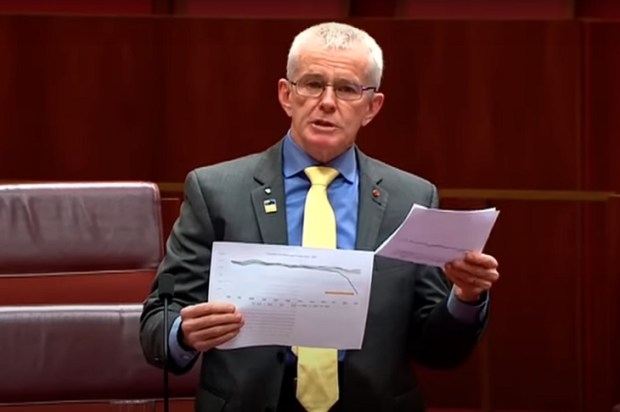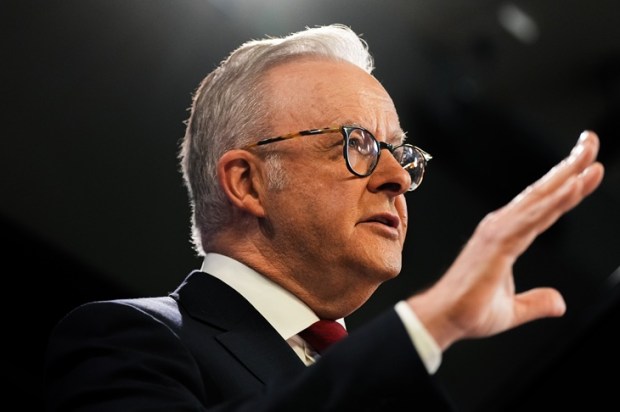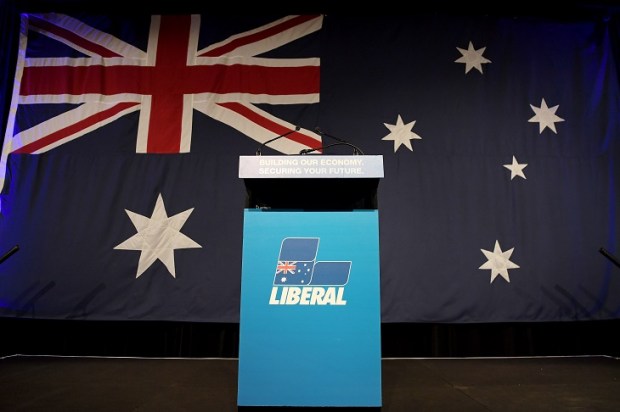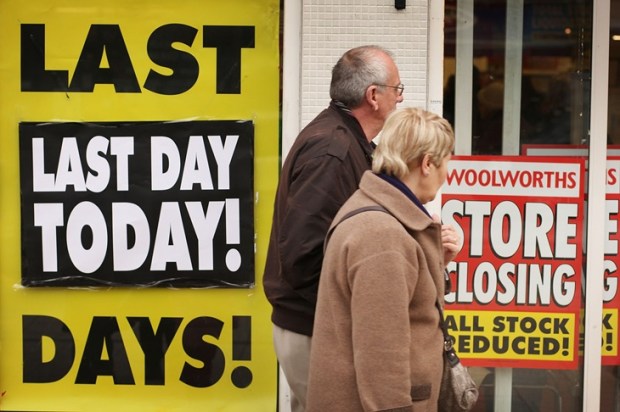The Online Safety Amendment (Social Media Minimum Age) Bill 2024 further erodes any remaining trust we have in the government and in politicians. As a frequent X user (formally Twitter), I have witnessed the white-hot anger, from users across all sides of the political spectrum, towards this Bill.
It is incomprehensible to me that the Liberal Party would support this Bill, especially as the sham consultation period of only 24 hours has still managed to have groups such as Amnesty International, UN Youth Australia, World Council for Health, the International Centre for Missing and Exploited Children, and the Australian Human Rights Commission raise significant concerns.
It is estimated that over 15,000 submissions were received, but so far only 107 have been published. Admittedly, a few are in support of the Bill, however, the vast majority stand in opposition, and below are excerpts of submissions from various experts and respected associations. The full submissions are available here.
After reading the below, it is surely not possible for any Liberal parliamentarian to vote in support. If a conscience vote is not allowed, then this is the issue to cross the floor over.
Submission #1.
Minus 18 Foundation – ‘For LGBTQIA+ youth, social media is more than a communication tool – it is a lifeline to safety, connection, and affirmation.’ The bill ‘inadvertently poses significant risks for LGBTQIA+ youth’.
Submission #2
PivotNine – ‘It is beyond disappointing that the government has allowed a mere 24 hours for submissions to this inquiry. It demonstrates a level of contempt for both the Parliament and the Australian people that is most unedifying’ and ‘Surveillance is not safety. Excluding our children from society is no way to build a better one. Paternalistic use of power by unelected bureaucrats ruling by fiat is not how we build the liberal democracy I want Australia to be.’
Submission #3
Valid Agenda – ‘Should be rejected due to its potential for overreach, its vague definitions that leave too much to future regulations, and its approach which could erode parental responsibilities and privacy.’
Submission #5
Pride in Swan Inc – ‘For many vulnerable youth, particularly those from the LGBTIQA+SB community, social media is far more than a digital pastime, it is a critical lifeline. It is often the only way they can connect with others who share their experiences, access affirming spaces, and find support networks that validate their identities. These connections are essential to their mental health and emotional well-being, especially in rural or remote areas where physical support systems may be unavailable.’
Submission #8
First Nations Peoples Aboriginal Corporation – ‘We wish to express our deep concerns and opposition’ and ‘vague terminology and expansive scope risk disproportionately affecting Indigenous communities that already face systemic barriers to digital access, education, and social inclusion, particularly Indigenous children under 16 years of age’.
Submission #9
UNICEF Australia – ‘Online safety is an incredibly complex issue, and we are deeply concerned about the extremely short consultation period provided for this bill. Given the extent, complexity, and impact of the bill on a large section of the population, it effectively excludes young people from being genuinely consulted and engaged in this decision.’ And, ‘The proposed bill has significant implications for children’s rights. Article 12 of the United Nations Convention on the Rights of the Child (UNCRC) states that every child and young person under 18 has the right to participate and have their opinions included in decision-making processes that relate to their lives.’ And, ‘Banning children from social media risks severing their access to information, resources and connection vital for their wellbeing.’
Submission #16
The University of Sydney – ‘Taking away under-16s’ access to social media could isolate them from support that they value and use.’ And, ‘Social media are digital technologies that enable social networking, and/or the creation and sharing of user-generated content (Aichner et al., 2021).
‘Young people view social media as a means by which to foster a sense of social connectedness to others through participation in online communities (Marsden et al., 2022). This involves using digital tools (e.g., apps, websites) to maintain social communication and relationships with peers, family members, and other individuals (Rose & Morstyn, 2013). The use of social media can offer benefits such as increased opportunities for social contact and support (Reid Chassiakos et al.,2016). Online communication can positively impact young people’s wellbeing by influencing the time they spend with existing friends (Valkenburg & Peter, 2007). Additionally, social media can be particularly valuable to young people with disabilities (including communication disability) who may feel excluded, marginalised, or lacking in support (National Academies of Sciences, Engineering, and Medicine, 2023).’
Submission #19
Australian Psychological Society (APS) – ‘The APS is concerned that the time for making a submission – one business day – is manifestly inadequate to properly assess and provide input into a matter of such complexity and significance.’
Submission #21
Equality Building – ‘We are writing to express our deepest concern about the approach being taken to this Bill. The referral of such a significant Bill to a Committee with one day for the public to provide submissions is an absolute insult to the electorate of Australia and to the rights of children and young people.’ And, ‘Many young people, including particularly marginalised young people, rely on access to social media to establish supportive friendship networks. This includes both young people with disability and young people who are unsure of their sexual orientation or gender identity. To have access to safe networks online is vital to their mental health and wellbeing.’
Submission #23
Australian Research Council (ARC) Centre of Excellence for the Digital Child – ‘We join over 140 national and international experts and Australia’s leading mental health organisations in warning the government that banning people under 16 from social media won’t make social media safe.’ And, ‘Enabling Australian teens to be full, articulate and deeply literate digital citizens is achievable and desirable, but a blanket ban is not the pathway to that future.’
Submission #25
QUT Digital Research Centre – ‘The proposed bill is fundamentally flawed’ and ‘it directly contradicts the findings and recommendations of the Joint Select Committee on Social Media and Australian Society’s final report social media: the good, the bad, and the ugly. The report did not recommend an age-based ban’. And, ‘We strongly recommend the committee reject this bill in its current form.’
Submission #29
Queensland Family & Child Commission – ‘Following announcement of this Bill yesterday, the Queensland Young Person’s Council that I run raised serious concerns about the proposed legislation. Young people spoke about how those who are impacted the least are making decisions for those impacted the most. There was a real feeling that young people are being punished.’
Submission #30
Reach Out – ‘ReachOut, and many of Australia’s leading mental health services, experts and academics have expressed significant concern with proposals to restrict young peoples’ access to social media, as outlined in extensive submissions and evidence provided to the Joint Select Committee on Social Media and Australian society.’ And, ‘Research by ReachOut shows that 73 per cent of young people in Australia access mental health information and support via social media platforms. 66 per cent of young people surveyed reported increased awareness about their mental health because of relevant content they accessed via social media.’
Submission #32
Murdoch University School of Law and Criminology – ‘The link between child rights of participation and child wellbeing is undeniable. This knee-jerk reaction to a perceived problem will, in my view, do far more damage to the participation and social connection of children across the country.’ And, ‘The negative impact of this bill will far outweigh any benefit, in that it will mean that children, especially those that are isolated (geographically or socially) become more isolated and increasingly disadvantaged.’
Submission #33
Metis Law – ‘The consultation period for this Bill has been unreasonably short, leaving insufficient time for meaningful input from key stakeholders … this Bill overrides parental discretion and responsibility in managing their children’s online presence.’
Submission #34
Bravehearts – ‘We wish to raise our concerns that the time-frame for this Inquiry is farcically short.’ And, ‘Children (defined as under 18 by the UN-Convention on the Rights of the Child) have a right to safe access to online spaces, this suggests that all measures to overcome digital exclusion must be taken. Digital rights requires that all children have equal and effective access to the digital environment in ways that are meaningful for them; child rights also include rights to Online Safety Amendment (Social Media Minimum Age) Bill 2024 [Provisions] participation, information and expression.’
Submission #37
Advocacy for inclusion – ‘AFI is concerned that the removal of access to social media platforms to children and young people with disability may have unintended consequences. These platforms have a distinct value proposition for children and young people.’
Submission #48
Australian Rights Taskforce – ‘On 9 October 2024, the Taskforce released an open letter signed by over 100 Australian academics with expertise in children’s digital technology use, 20 world-leading international experts, and 20 reputable Australian civil society organisations, urging the government to rethink its proposal to ban children from social media under the age of 16.’
Submission #49
Bloom-ED – ‘Bloom-ED has some serious concerns regarding the Online Safety Amendment minimum age social media ban. Social media remains an important source of information about sex, consent and healthy relationships for teens.’
Submission #50
UN Youth Australia – ‘A complete ban for young people under 16 years of age will further isolate young people from safe communities and established online social networks.
‘To deprive young people of online communities is to deprive our most vulnerable, particularly women and LGBTQIA+ youth, of their own spaces in a world which they recount to continue to be hostile towards them (Samardzhiev, Ng & Gamagedara, 2024: 29).’
Submission #54
Lindcombe Community Soccer Club – ‘Our concern is that if an age-restriction is placed on access to social media, this will severely and adversely impact on our ability to operate, promote and market the Club, to such an extent that Club’s ongoing viability may be threatened. The ability of our junior members to gather, post, discuss and react to information, images and videos (and the like) of their participation in their Club sporting activities (for example) is vital.’
Submission #57
Batyr – ‘For many, these platforms serve as lifelines to their communities, particularly when offline avenues of support may be inaccessible. Upon the implementation of this bill, young people may face immediate loss of community, connection and resources, as well as critical avenues to mental health support.’
Submission #68
Alannah & Madeline Foundation – ‘The Foundation has serious reservations about attempting to prevent and address harms to children online through social media age-gating.’
Submission #69
Academics from Flinders University – ‘General Comment No 25 (2021) on children’s rights in relation to the digital environment (GC 25) clearly provides that the right to non-discrimination against children “requires that States parties ensure that all children have equal and effective access to the digital environment” and that “States parties should take all measures necessary to overcome digital exclusion”. The Bill does exactly the opposite.’
Submission #71
Australian Youth Affairs Coalition – ‘AYAC is Australia’s national peak body representing the interests of young people aged 12-25 years, and the wider youth sector’ and ‘we are compelled to note our serious concerns about the timeline allowed for this Inquiry. The incredibly short time-frame does not inspire confidence that this is a genuine consultation. Further, it effectively excludes young people – the very people who will be most impacted by this policy – from the process. This is a violation of young people’s right to have a say in matters affecting them as enshrined in the United Nations Convention on the Rights of the Child, to which Australia is a signatory.’ And, ‘The proposed legislation would also prevent civil society organisations from being able to carry out our vital work in supporting a thriving democracy. Social media is a key avenue through which youth-focused organisations.’
Submission #74
AI Ally – ‘We are making this submission on behalf of AI Ally, a University of Melbourne research initiative partnered with Girl Geek Academy and funded by the eSafety Commissioner.’ And, ‘A blanket ban does not resolve these issues and may inadvertently hinder opportunities for self-development, education, autonomy, and resilience-building, and social connection in digital environments.’
Submission #75
Enriching Lives Psychology – ‘For many young Australians – especially those who are queer, disabled, or facing interpersonal violence – social media provides a crucial lifeline. It offers access to affirming communities, anonymity, and resources that might otherwise be unavailable.’
Submission #82
Australian National University Law Reform and Social Justice Research Hub – ‘Social media represents an extension of the public sphere where political and social debate takes place, and to remove young people from this part of the public sphere is to limit their expression and political freedom.’ And, ‘We condemn in the strongest terms the decision of the Committee to provide a one-day consultation period. First, it is entirely unapparent that this Bill is urgent other than as demanded by the government’s election interests.’ And, ‘This is part of a concerning and undemocratic trend in Australian parliamentary process during this term of parliament. On major pieces of legislation, such as the Combatting Misinformation and Disinformation Bill, the Electoral Reform Bill and on this Bill, the Parliament has reduced consultation periods to an unacceptable extent. None of these bills deal with such an urgent issue that they warrant dispensing with the long-held democratic tradition of consulting the communities they represent.’
Submission #83
World Council for Health – ‘The Bill Tramples Parental Rights: Parenting children is the parents’ right and this bill could override parental discretion and responsibility in managing their children’s online presence.’ And, ‘We strenuously oppose the Social Media Minimum Age Bill 2024 and urge policymakers to reconsider the very premise of the legislation, let alone what has been included in the Bill. While the Bill is intended to protect young Australians during critical stages of their development, we believe its potential consequences will cause greater harm, particularly regarding privacy, freedom of expression, and the introduction of digital identification systems. All of which require careful scrutiny.’
Submission #93
ChildFund Australia – ‘This particular bill will have serious and unintended implications for young people, and shows disregard for their rights in the digital environment. Children have the right to be safe online, but their access to online environments is critical to the full realisation of their rights.’ And, ‘It’s critical to protect children in the digital environment, not prohibit them from it.’
Submission #95
WeCollaborate– ‘Giving the Australian people only 24 hours to respond to legislation so full of holes but so consequential is scandalous. Social media is a vital lifeline for many marginalised and isolated young Australians. That their Parliament is willing to throw them under the bus in order to workshop how best to gain middle Australia’s compliance with Digital ID is disgraceful.’ And, ‘This isn’t about “child safety”, and we refuse to humour that figleaf. This is about Digital ID.’
Submission #96
Australian Human Rights Commission – ‘Based on the information currently available, the Australian Human Rights Commission has serious reservations about the proposed social media ban for children under 16 years of age.’
Submission #99
Amnesty International – ‘Social media also allows young people to connect, to learn, to express themselves, and to hold the powerful to account. It is for these reasons that so many LGBTQIA+ young people have expressed their concerns with the proposed Bill. A ban that furthers isolation, that obliterates connections and community, will not meet the government’s objectives of improving young people’s lives.’
Submission #104
Human Rights Law Centre– ‘This Bill undermines the human rights of young people in unacceptable ways, including their rights to freedom of expression, access to information, and privacy.’
Submission #105
Children and Young People with Disability Australia– ‘Social media and the internet are often a lifeline for young people with disability, providing one of the few truly accessible ways to build connections and find community. It is a place where young people can choose how they want to represent themselves and their disability.’
Submission #107
International Centre for Missing & Exploited Children– ‘We do not see how the proposed legislative approach will adequately protect children. In fact, we are convinced that it will just encourage teens to move to other very popular apps and sites where concerns about online grooming and OCSEA have been well documented, but which are outside of the scope of the proposed legislation. In the end, rightly concerned parents, caretakers, and policymakers will be left in the exact same place they are in today.’

























